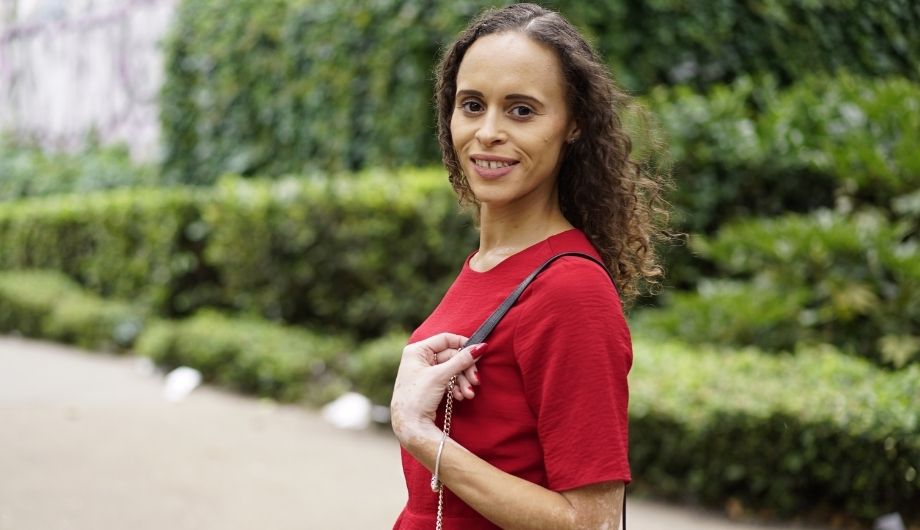Our campaigners and ambassadors have been speaking out about why they think it is important people are offered the right support at the right time. And sharing why other people’s attitudes and responses to visible differences, like vitiligo, need to be challenged.
We know that when new treatments are spoken about it can be difficult, particularly if you’ve recently been diagnosed with a condition, or are learning to live with a visible difference such as vitiligo. News like this can bring additional questions from other people and can reinforce pressures or attitudes that you need to look or present in a certain way.
Our campaigner, Sultan, and ambassadors, Natalie and Shankar have been talking to the media today about their experiences of having vitiligo. For them, it’s all about challenging the discrimination that too many people with visible differences face and ensuring that people are confident seeking expert advice from their GP or dermatologist before making a decision on treatment.
Here’s what Sultan had to say:
“Skin is important. You can’t take it off. I panicked as I watched patches of colour slowly disappear from my skin. 12 years old is already a tender age – the fact that this was not an issue for anyone else around me made me feel isolated and alone. These feelings of dejection caused me to develop a preoccupation with my external appearance and gave me an overarching longing to be ‘normal’, to look like everyone else, and to not have to worry about leaving my house for fear of being stared at.
“I couldn’t continue living my life with this mindset, so I worked on changing it, instead learning to see my vitiligo as my superpower. In 2018, I was signed as a model, working with brands such as Lush, Urban Outfitters and Whatsapp. My modelling has enabled me to meet people across the world who, like me, wear their superpower on their skin. I’m committed to using my platform to end the taboo around people who look ‘different’, encouraging people to embrace the unconventional rather than fear it.
“I no longer see my vitiligo as something that needs to be ‘cured’. Everyone should be able to choose whether they want treatment, but I encourage anyone considering this new cream to talk to their GP or dermatologist first. Personally, I wouldn’t try it, because my vitiligo is part of who I am, and I now see myself as a role model for kids like me who might be struggling to accept themselves. Embracing my condition is the best thing I’ve ever done, and I want to help others to do the same.”
If you’re finding it difficult to cope with other people’s reactions to your visible difference, or are struggling with the emotional impact of a visible difference, know that you are not alone. Changing Faces is here to support you, no matter where you are in your journey.
